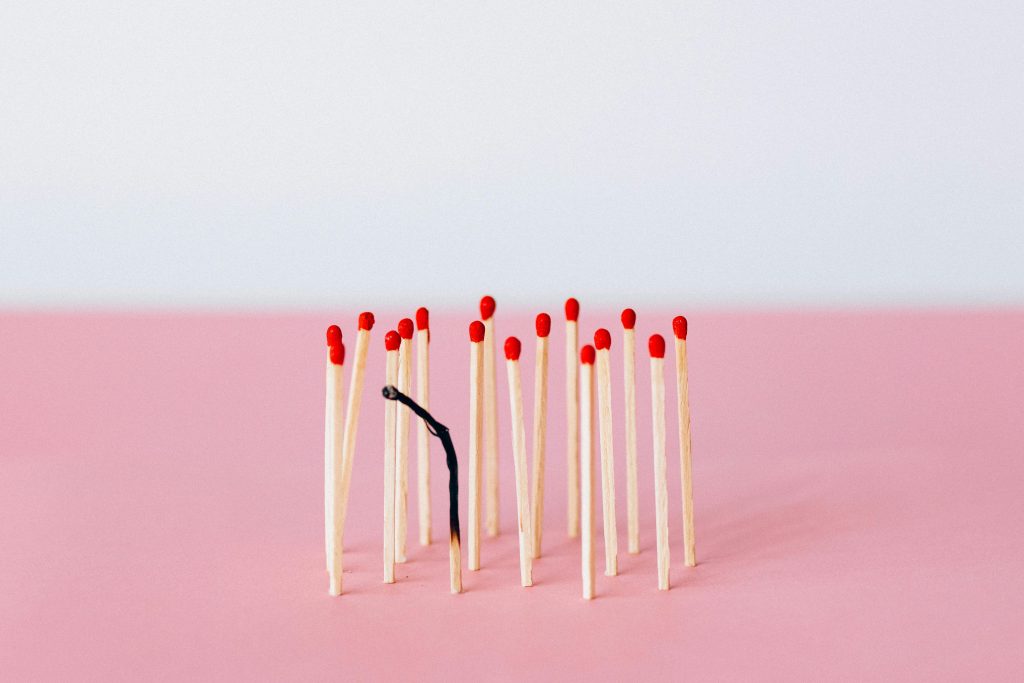
A friend of mine suggested that I write about this topic, and it is something I have discussed with many people over the past couple of years. Burnout is a serious problem that can lead to severe consequences if not appropriately addressed. I was diagnosed with burnout by the end of 2023, and it was a wake-up call to me to stop whatever I was doing. I have been working for a little over five years now, and burnout is something I have read about a lot in the past, but I never thought it would affect me so severely.
During that period and before being admitted into the hospital, I sensed something was wrong from how long and hard I worked. I spent years working under stress and putting myself under so much pressure that I became addicted to working, in a literal sense. I found myself working over 12 hours a day, which left me with no time to do anything else. Even resting felt strange, and I felt an enormous amount of guilt when it was time to sleep. I reached a point where I couldn’t stop, even when I had brief moments of realisation that something was wrong. Eventually, I was too exhausted to stop myself. At some point, I knew it was too much!
In this article, I would like to share a few tips from my experience on how to prevent burnout. I am still learning, so I hope these could be useful.
1- Set Your Boundaries Straight
Unless your work contract specifies that you are available to work more than 8 hours a day, you don’t have to go the extra mile and work overtime. Trust me, nothing will change by doing too much or working overtime; it just adds exhaustion with time and more stress. No one will praise you, and with time, it will become the norm for you. Setting boundaries for yourself is crucial, as it reminds you that, although you enjoy your work and recognize its importance for various reasons, it’s essential not to forget yourself in the process.
2- Create the Work-Life Balance
As much as I don’t think the work-life balance thing is entirely possible, however, it is important to create that balance. I overworked to a point where the life aspect disappeared in the pile of work I had. Even though I have been seeing and spending more time with my family, I found myself mainly working, and when I decided to take a break, I spent it sleeping because I was exhausted. They even mentioned before that I was home, but not really home, because I was in the room working most of the time. In 2024, after my sick leave, I decided to approach things differently. I started making time for my life, socialising, being present with my family both mentally and physically, and truly living an everyday life with hobbies and a nice routine.
3- Prioritize Regular Breaks
Before, I used to skip lunch breaks to work more. I felt that not taking it would keep me ahead of my schedule, but again, I always ended up working long hours. Afterwards, I started to prioritize taking regular breaks, especially lunch breaks, and I mean a real one. Not the one where you eat while working through the break. Breaks are meant to be taken so you can step away from work a little and rest. Even when you have a tight schedule, try to take 5-minute breaks throughout the work day to prepare a cup of tea or coffee. Those small ones really help, and they make all the difference. I used to see co-workers take those breaks and socialise a little while waiting for their coffee or tea, and thought it was a waste of time, but afterwards
4- Take Vacations
As I was slowly falling into burnout, I now recall that I took only a week off per year for three consecutive years and worked during the majority of public holidays. I carried burnout as some badge of honour that was continuously hurting my skin to the point that I got used to the pain. To avoid burnout, I suggest taking holidays. I know they might seem like a privilege, but they are not; they are, in fact, necessary. Since last year, I have taken many breaks, both solo and with my family, and it has reflected positively on my mental and physical health. Taking more breaks helped me think clearly and pay attention to what matters.
5- Don’t Stay Isolated, Talk to Someone
One of the things that kept me in that rabbit hole was the fact that I barely spoke to anyone; if I did, it was about how stressed and overwhelmed I was due to work. Over time, I distanced myself and barely interacted with anyone, as I thought no one would understand. However, after the burnout diagnosis and sick leave, I spent the weeks off re-learning how to be present and speak with people around me, mainly my family, my therapist, and a few of my close friends. It helped as it allowed me to socialise and learn not to make work my entire personality.
6- Spend More Time Outdoors
As you become accustomed to desk life, leaving your desk over time will feel increasingly heavy. I realised at some point that doing the usual household chores, like grocery shopping, felt too much, so I got my groceries delivered, allowing me to stay on my computer. It became an addiction, and my parents joked that my laptop felt like my child, not just a device. Over time, I grew accustomed to the fact that I didn’t go out and no longer took my regular runs or long walks.
Of course, that poorly affected my physical health, and the worst part is that I didn’t seem to care as long as I was on my computer. I had most of my meals, if not all of them, while working on my laptop. After my break, I started making time for walking again, regardless of the reason, as long as I’m moving my body. Taking care of your physical health is as important as your mental health; taking care of the food you eat and making time for movement are both crucial and should not be taken lightly.
I hope you found this article helpful. Please share your feedback or any additional tips via the contact me form.









